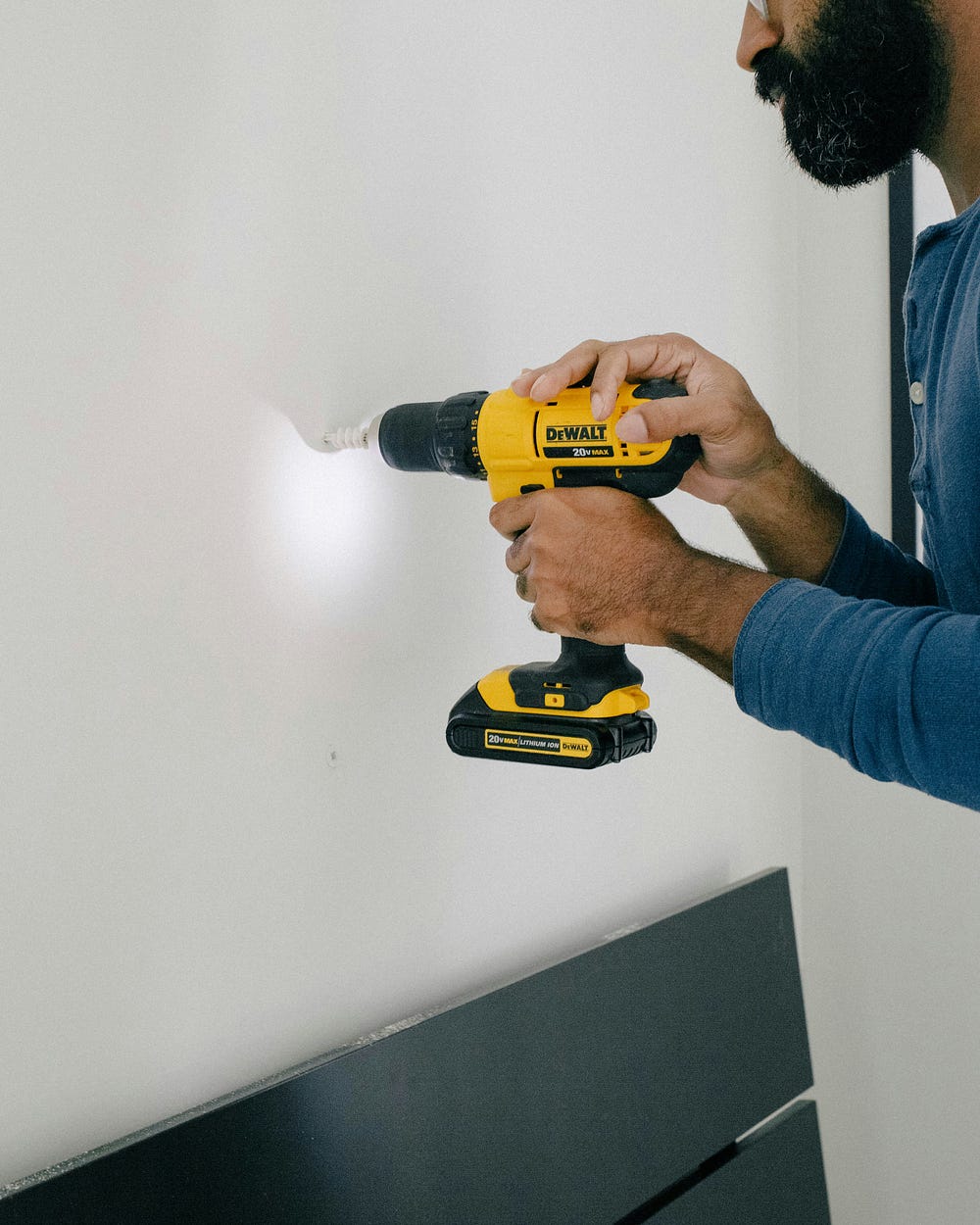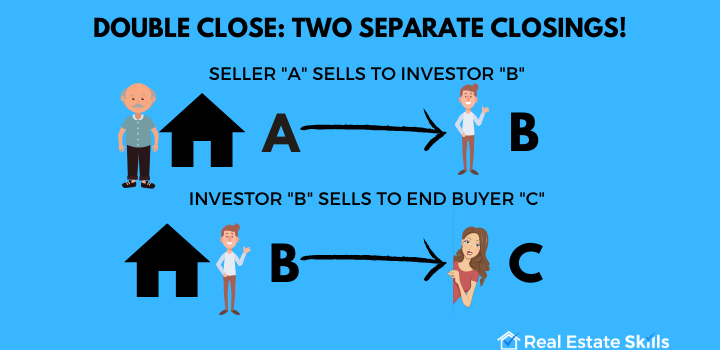How to Wholesale Real Estate in Michigan
Legal, Ethical Wholesaling Practice Guide for Wholesale Investing in Michigan.
What is The Wholesale Investing Method?

Wholesaling Real Estate is an ESSENTIAL part of real estate and in fact drives somewhat of 40% of all real estate transactions. Investors, Sellers and Agents need wholesalers.
Trying to “ban” or “outlaw” wholesaling or the “assignment of contract,” which is a constitutionally protected activity allowing citizens to enter private contracts with one another without needing a 3rd party or governing factor, …. is ridiculous and only serves the rich and well off.
Disclaimers!:
The Real Estate HUB is an Amazon & Sovrn Commerce affiliate, some links in this article will take you to products and we may earn a commision at no extra cost to you. Furthermore, The Real Estate HUB and its affiliates are not licensed Financial Advisors, Consultants, nor are lawyers or attorneys at law. The Real Estate HUB also is not a licensed broker. Our Content is for “Entertainment” and “Educational” Content but should not be used for personal advice. Please DYOR and speak to legal or industry professionals.
We claim no responsibility for any financial loss or legal decisions you make.
The argument here is that wholesalers need to be licensed to sell houses. That is only half of it, but the real answer is NO!
https://medium.com/@TheRealEstateHUB/subscribe

You do not need to be a licensed agent to sell houses. It only matters when a wholesaler double closes a deal (5 per year) or is a home owner selling their own houses.
To Wholesale Ethically You Need to Know a few Things First Like —
- What is ethical wholesaling real estate
- You need a state approved purchase and sales agreement
- Understanding what brokering and acting as an agent means
- Marketing your contract & equitable interest and not the property itself.
- disclosures to seller and buyers. Transparency.
- In Michigan, your PSA is a “Marketable Commodity.” This is what you market to cash buyers / investors.
- The assignment of contract or (AoC.)
- Title Co and Closing / C.O.E..
Let’s go into this further.

So, Do You Actually Need to Own the Property?
When wholesaling real estate in Michigan, you typically do not need to own the property. Wholesaling often involves signing a purchase contract and then assigning that contract to another buyer for a fee, without ever taking ownership of the property. This is the Assignment Method.

All-new Ring Battery Doorbell with Ring Indoor Cam 2nd Gen for modern home security! (Version Black) $79.99. Amazon.com
What is The Difference Between Assignment Method & The Double Closing?
Double closing, on the other hand, is a heavier lift. In this approach, you actually buy the property from the seller and then resell it — often the same day or the next — to your end buyer.
You take ownership, even if just for a hot minute, which means you’re on the hook for closing costs, funding (hello, transactional lenders!), and, crucially, Michigan’s legal limits. Because you’re now selling a property you own, each double closing counts toward that five-transaction threshold in a year.

Cross it, and the Michigan Occupational Code might demand a broker’s license, making this method trickier for unlicensed wholesalers. It’s a bold move for bigger profits or discreet deals, but it’s a different beast — one that requires more cash, coordination, and a sharp eye on the law.
This means you take ownership and are subject to the 5 property limit before you need to be a licensed real estate agent to wholesale real estate.

You act as a “Middle- man” for off market properties bringing motivated sellers to buyers or investors. This method is legal and does not require a real estate license, as long as you avoid activities reserved for licensed brokers or agents, such as marketing the property itself.

You can however market your contract and equitable interest in the property, i.e. your right to purchase. This marketing is always “Direct to Investor,” Posting your contracts on social media can get dicey if not worded correctly.
If worded incorrectly you could be subjected to legal action as “incorrectly Marketing your contract could be seen as brokering.” so be aware on how to conduct business in your market.
Make sure to follow your states marketing laws, real estate marketing laws and wholesaling laws.
Remember when finding Buyers, Cold Calling will be your best friend.
https://medium.com/@TheRealEstateHUB/subscribe
The 5-Property Limit Misconception
You mentioned that state law allows unlicensed persons to wholesale 5 properties per year. However, this appears to be a misunderstanding.

Michigan law (Act 299 of 1980, Section 339.2502b) states that owners who sell their own real estate must obtain a license if they engage in more than 5 sales per year as a principal vocation.
This does not apply to wholesalers who assign contracts, as they do not own the property. Therefore, there is no evidence of a 5-transaction limit for contract assignment wholesaling.
Additional considerations before you go make offers.
If you choose a double closing strategy, where you briefly own the property before selling it, each such transaction counts as a sale by an owner.
SmallRig All-in-One Universal Quick Release Phone Video Rig Kit Pro, Phone Stabilizer Rig Kit with LED Light Microphone $151.99.

In this case, doing more than 5 such sales in a year might require a license. Given the complexity, consulting a real estate attorney is advisable to ensure compliance with all laws.

Survey Note: A Detailed Analysis of Wholesaling Real Estate in Michigan
This section provides a comprehensive overview of wholesaling real estate in Michigan, addressing the legal framework, common misconceptions, and practical considerations based on available research and legal interpretations as of March 26, 2025. It expands on the direct answer, offering a detailed examination for those seeking a deeper understanding.
Understanding Wholesaling in Michigan
Wholesaling real estate involves finding a property under market value, entering into a purchase contract with the seller, and then assigning that contract to an end buyer, typically an investor, for a fee.
This process, known as contract assignment, does not require the wholesaler to take ownership of the property, distinguishing it from traditional buying and selling.
In Michigan, this practice is generally considered legal, provided the wholesaler does not engage in activities that require a real estate license, such as acting as a broker or agent.
The legal basis for this is rooted in the doctrine of equitable conversion, which treats the contractual right to purchase as a “marketable commodity.” — This allows wholesalers to sell their position in the contract rather than the property itself, avoiding the need for licensure under certain conditions.
The Legal Framework: Michigan Occupational Code
Michigan’s Occupational Code (Act 299 of 1980, Section 339.2502b) is central to understanding licensing requirements.
It states that an individual who owns real estate must obtain a license as a real estate broker if they engage in the sale of that real estate as a principal vocation, defined by:
- Engaging in more than 5 real estate sales in any 12-month period.
- - Representing to the public that they are principally engaged in the sale of real estate.
- - Devoting over 50% of working time, or more than 15 hours per week in any 6-month period, to the sale of real estate.

Importantly, this section applies to owners selling their own property. For wholesalers using contract assignment, where ownership is not taken, this law does not directly apply, as they are not selling real estate they own but rather their contractual rights as a marketable commodity.
4K Drones 1080p — with Camera for business owners,Drones for Adults with Emergency Stop and quality recording. $74.99.

Addressing this 5-Property Limit Misconception —
A common belief, as mentioned, is that unlicensed persons can only wholesale 5 properties per year. Real Estate Agents will love to tell you you cant wholesale, but this is only because they failed to learn how to do it at their real estate school of choice.
This likely stems from a misinterpretation of Section 339.2502b, which applies to owners, not wholesalers. Research from sources like [Real Estate Skills] and [Fausone & Grysko, PLC], suggests no specific limit on the number of contract assignments for unlicensed wholesalers, as long as they adhere to legal boundaries.
However, some sources, such as [Real Estate Skills], mention a 5-transaction limit for unlicensed wholesalers, possibly confusing it with the owner-sales limit and referring to “double closing scenarios.”

In a double close, where the wholesaler briefly owns the property, each transaction could count toward the 5-sale limit, potentially requiring a license if exceeded.
This distinction is crucial, as standard contract assignment does not involve ownership, thus not triggering the limit.
The Practical Considerations and Legal Risks:
Wholesalers must be cautious not to cross into licensed activities. For instance, marketing the property itself, rather than the right to the contract, is restricted to licensed agents under Michigan law, as noted in [Real Estate Bees].
Additionally, transparency is key; wholesalers must disclose their role and fees to both sellers and buyers to avoid legal issues. Legal opinions, such as those from [Fausone & Grysko, PLC], highlight that collecting a “fee” for assigning a contract, rather than a commission, is a common practice, exploiting a potential loophole.
https://medium.com/@TheRealEstateHUB/subscribe

However, this could face pushback from realtors, and staying within legal bounds is essential. Most Agents and Realtors will say you need to be licensed but this is just part of it. When agents take their state tests, about 80% fail 24% of their tests.
In fact most agents and brokers don’t know how to seller finance or do any creative financing options to help their could be potential client. There is nothing wrong with being a licensed agent, in fact it opens more doors for you, but when Real Estate Investing, you don’t need lots of capital or a license, you just a motivated buyer & a motivated seller.
Make the deal!

Understanding The Double Closing vs. The Contract Assignment
The method of wholesaling affects legal requirements:
- Contract Assignment: No ownership, no license needed, no 5-transaction limit.
- - Double Closing: Involves brief ownership, each sale counts toward the 5-limit for owners, potentially requiring a license if exceeded.
Recommendations for Compliance
Given the complexity, consulting a Michigan real estate attorney is highly recommended. Connect with local investors and Local Real Estate Lawyer/ Attorney’s if you’re still unsure where or how to begin!
Attorneys can review contracts, ensure compliance with disclosure requirements, and advise on whether your activities might be interpreted as requiring a license.
Resources like [ContractsCounsel] list attorneys experienced in wholesaling contracts, offering tailored advice.
Keurig K-Elite Single Serve K-Cup Pod Coffee Maker, with Strength and Temperature Control, Iced Coffee Capability $99.99

In short, wholesaling via contract assignment in Michigan does not require ownership and has no specific transaction limit for unlicensed individuals, contrary to the belief of a 5-property cap.
The 5-sale limit applies to owners selling their own property, relevant only in double closing scenarios. Given the potential for legal gray areas, seeking professional legal advice is prudent to navigate Michigan’s real estate laws effectively.

So the result is michigan is an assignment of contract friendly state, while also encouraging home owners to become real estate agents themselves.
Thank you for reading this article!
https://medium.com/@TheRealEstateHUB/subscribe

Key Sources for this Article —
Comments
Post a Comment